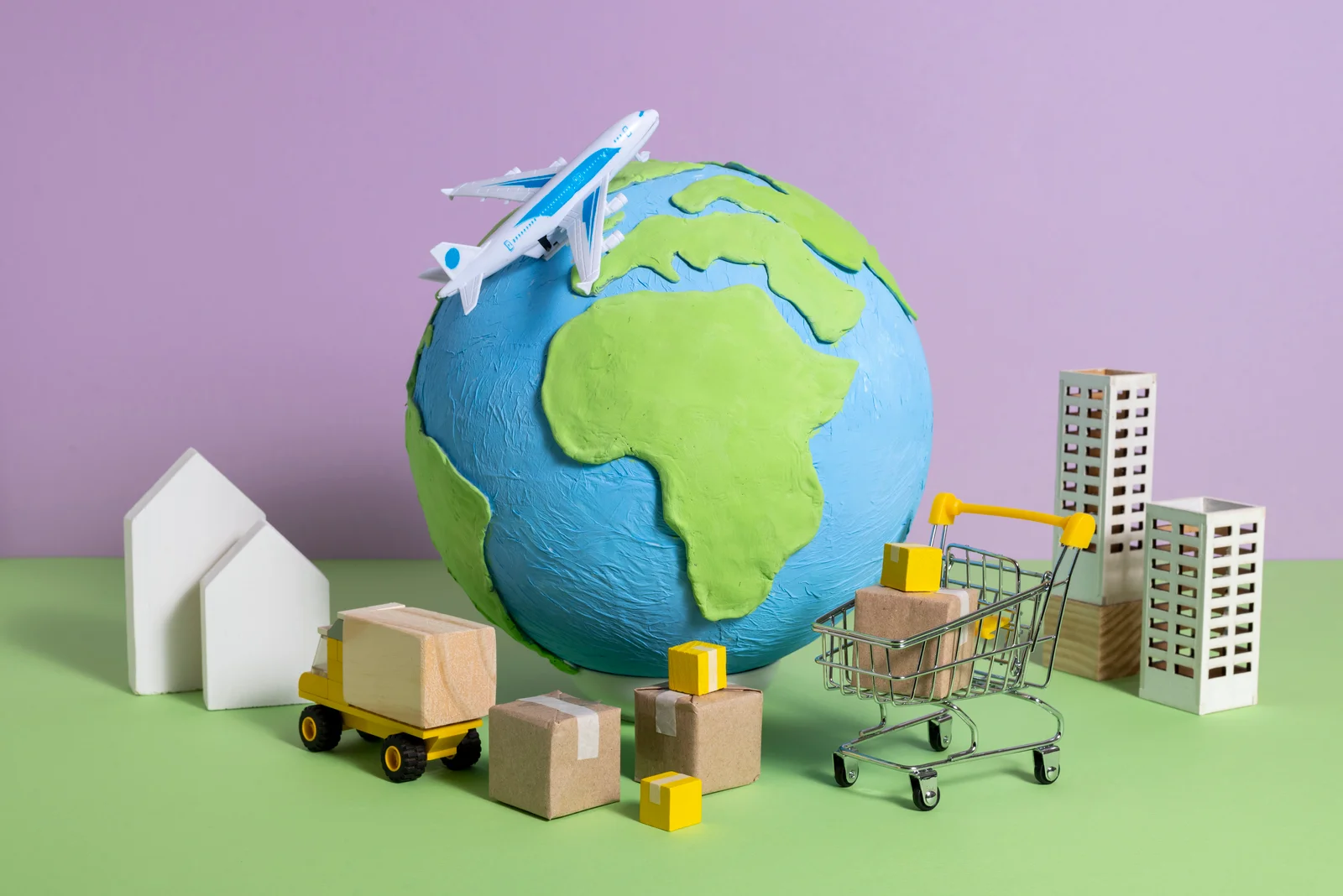
Aline Beltrame de Moura*
Following over a decade without finalizing any Free Trade Agreements and after a prolonged phase of isolationist policy, Mercosur entered into its inaugural trade agreement with an Asian nation on December 7, 2023. This development injects new vitality into the regional coalition at a time when its relationship with the European Union faces uncertainties about future collaboration.
Once the agreement comes into effect, it mandates the instantaneous removal of tariffs on all goods that Singapore imports from Mercosur. On the other side, Mercosur will gradually eliminate tariffs on 95.8% of imports from Singapore, a process to be completed within a span of up to 15 years. Initially, only 25.6% of these imports will benefit from the tariff removal at the onset of the agreement. Mercosur has excluded its most sensitive products from the terms of the agreement.
Among the countries of MERCOSUR, the key export commodities are poultry, ferroalloys, pork, beef, and iron minerals. Conversely, the primary imports for the bloc consist of insecticides, integrated circuits, pharmaceuticals, and ships[1]. Singapore’s total trade with the bloc represents half of its trade with Latin America. More than 100 Singaporean companies are based in MERCOSUR markets and operate in sectors such as energy, agribusiness, manufacturing, hospitality and infrastructure. Examples include Changi Airports International, Wilmar International Limited and SEA Group. There are more than 100 MERCOSUR companies registered in Singapore.[2]
Additionally, Singapore’s global financial influence is evident as it is among the foremost investors and sought-after investment locations, also serving as a pivotal maritime transport service hub. It’s important to remember that Singapore holds a strategic position as a gateway to Asia, especially the ASEAN (Association of Southeast Asian Nations) region, which encompasses countries like Brunei, Cambodia, the Philippines, Indonesia, Laos, Malaysia, Myanmar, Thailand, and Vietnam.
Consequently, Singapore has emerged as a leading choice for setting up regional headquarters to explore business prospects across Southeast Asia and beyond. This prominence can be credited to its advantageous tax and legal frameworks, which have transformed the city-state into a global financial hub and drawn over 37,000 international firms and 7,000 multinational corporations. For instance, the process of company registration can be completed in just one day, assuming all documentation is correctly submitted and the required minimum paid-up capital is merely 1 South African dollar (equivalent to US$0.73) [3].
An impact study conducted by the Foreign Trade Secretariat of the Brazilian Ministry of Development, Industry, Trade and Services suggests that the agreement is expected to result in a R$28 billion cumulative rise in Brazil’s GDP by 2041, alongside a R$11 billion boost in investments during the same timeframe. Moreover, it projects that the trade volume, which stood at US$9.4 billion in 2022, will escalate to US$49.1 billion within approximately two decades[4]. Brazil’s primary exports to Singapore are concentrated in the oil and mining industries, notably including refined oil, crude oil, and ferro-niobium. Additionally, significant trade components also encompass agricultural products like chicken, pork, and beef, along with gas turbines. Notably, Brazil is a key supplier of meat to Singapore, providing 58% of the beef, 48% of the poultry, and 39% of the pork consumed locally.[5].
The agreement, signed during the 63rd Mercosur Summit in Rio de Janeiro, is divided into the following themes: Initial Provisions and Definitions, National Treatment and Market Access, Rules of Origin, Trade Defense, Bilateral Safeguards, Sanitary and Phytosanitary Measures, Technical Barriers to Trade, Customs Procedures and Trade Facilitation, Services, Movement of Individuals, Electronic Commerce, Investments, Public Procurement, Intellectual Property, Competition, Micro, Small and Medium-sized Enterprises, Legal Transparency and General, Final and Institutional Provisions[6].
This Free Trade Agreement introduces significant advancements across various sectors, aiming to enhance transparency, security, and predictability for trade and investments between the countries. In the realm of service trade, it establishes clearer market access conditions and treatment for foreign service providers, with a focus on financial, professional, and postal services. Moreover, it promotes cooperation and governance to stimulate investments, including the appointment of “Ombudspersons.”
For the first time, Mercosur adopts a chapter on electronic commerce, setting principles to support e-commerce and encourage digital exchange, addressing issues such as electronic authentication and online consumer protection
A chapter on government procurement aims to increase transparency and equal treatment for foreign suppliers, allowing Brazilian companies access to the Singaporean market while preserving strategic exceptions for Brazil.
Customs procedures and trade facilitation have been redesigned for efficiency and simplification, promising reduced costs and timelines for operators, with special attention to perishable goods.
The agreement preserves the right of both parties to adopt trade defense measures as per the WTO, including bilateral safeguards to protect against import surges.
Commitments in sanitary and phytosanitary measures seek to expedite and ensure interaction between health authorities, focusing on mutual recognition and the prevention of unjustified trade barriers.
In the area of intellectual property, the agreement covers various topics, excluding sensitive issues for Mercosur. Singapore commits to recognizing coffee as a geographical indication, in addition to protecting another 49 Brazilian GIs, and incorporates measures for the protection of genetic resources and traditional knowledge[7].
A special chapter focuses on the development of Micro, Small, and Medium Enterprises (MSMEs), recognizing their importance for inclusive and sustainable economic growth, with an emphasis on internationalization, entrepreneurship, digital transformation, and access to financing.
Once signed, the agreement will be submitted to the parliaments of Singapore and the Mercosur countries for approval, ratification and entry into force.
[1] https://www.mercosur.int/pt-br/mercosul-e-singapura-concluem-negociacoes-de-um-acordo-de-livre-comercio/
[2] https://www.aseanbriefing.com/news/singapur-firma-un-alc-con-el-bloque-mercosur/#:~:text=Singapur%20ha%20firmado%20un%20acuerdo,por%20sus%20siglas%20en%20ingl%C3%A9s).ge
[3] https://www.aseanbriefing.com/news/singapur-firma-un-alc-con-el-bloque-mercosur/#:~:text=Singapur%20ha%20firmado%20un%20acuerdo,por%20sus%20siglas%20en%20ingl%C3%A9s).
[4] https://www.gov.br/mdic/pt-br/assuntos/comercio-exterior/publicacoes-secex/serie-acordos-comerciais/arquivos/estudo-de-impacto-singapura.pdf.
[5] https://agenciabrasil.ebc.com.br/es/economia/noticia/2023-12/mercosur-firmara-acuerdo-comercial-con-singapur.
[6] https://www.gov.br/siscomex/pt-br/acordos-comerciais/pdfs/resumo-informativo-esp.
[7] https://www.gov.br/mdic/pt-br/assuntos/noticias/2023/dezembro/mercosul-e-singapura-assinam-acordo-de-livre-comercio-na-cupula-do-rio#:~:text=O%20acordo%20prev%C3%AA%2C%20a%20partir,em%20no%20m%C3%A1ximo%2015%20anos.
*Aline Beltrame de Moura
Professor of Law at the Federal University of Santa Catarina, Brazil
Holder of the Jean Monnet Chair
Co-Coordinator of the Jean Monnet Network Policy Debate – Bridge Watch
Editor-in-Chief of the Latin American Journal of European Studies